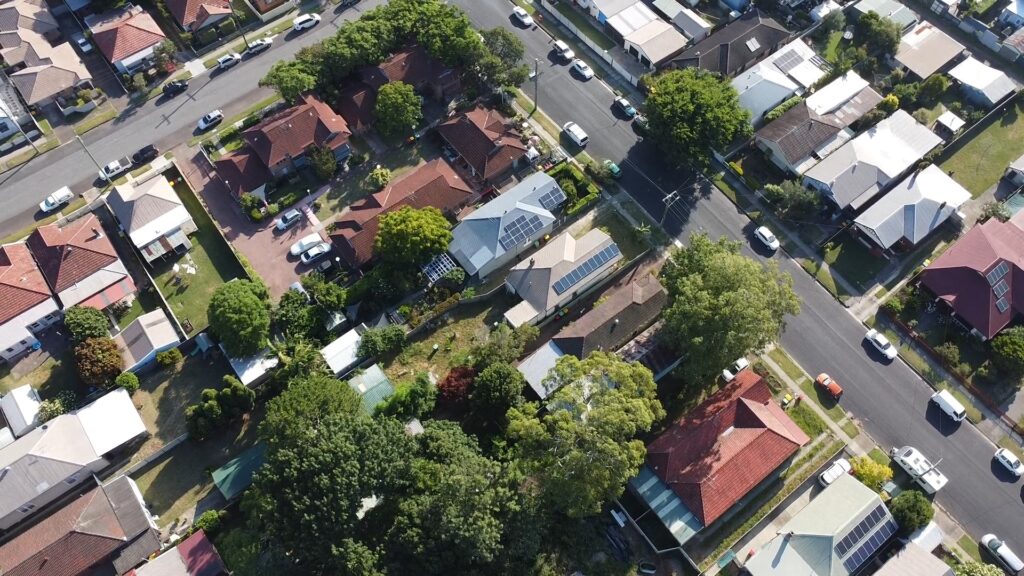Posts in Category: Atlanta Real Estate Market
Affordable Housing in Atlanta: Challenges and Opportunities
Atlanta, Georgia, known for its vibrant culture, growing economy, and diverse communities, has experienced a surge in population over the past decade. However, this rapid growth has brought about a critical issue: affordable housing. Many Atlanta residents are struggling to find housing that fits their budgets, leading to a pressing need to address this crisis. In this article, we will delve into the challenges and opportunities surrounding affordable housing in Atlanta.

The Affordable Housing Crisis
The challenges associated with affordable housing in Atlanta are complex and multifaceted, but they primarily revolve around the following key issues:
- Rising Housing Costs: As Atlanta’s economy has flourished, so too have housing prices. This increase has outpaced wage growth, making it challenging for many residents to find affordable housing options.
- Gentrification: The process of gentrification has transformed several Atlanta neighborhoods. While this has led to improvements in infrastructure and safety, it has also displaced many long-term residents who can no longer afford to live in their communities.
- Income Inequality: Atlanta struggles with significant income inequality, with a wide gap between high-earning professionals and lower-wage workers. This disparity impacts people’s ability to access affordable housing.
- Limited Government Funding: Federal and state funding for affordable housing programs remains limited, leaving local governments and nonprofit organizations to bridge the gap.
The Opportunities for Affordable Housing
In the face of these challenges, Atlanta is also home to several opportunities to improve the situation and create more affordable housing options:
- Public-Private Partnerships: Collaborations between local governments and private developers have led to the creation of mixed-income communities. These partnerships encourage affordable housing units within larger developments.
- Zoning Reforms: Atlanta has started to reevaluate its zoning laws to allow for more housing density, making it easier for developers to build affordable units.
- Community Land Trusts: Nonprofit community land trusts acquire and maintain land for the benefit of the community, ensuring long-term affordability.
- Workforce Housing Initiatives: Some businesses in Atlanta are investing in housing initiatives for their employees, recognizing the importance of affordable housing for a stable and content workforce.
- Affordable Housing Tax Credits: Tax credits for developers who create affordable housing have encouraged the construction of low- and moderate-income housing in the city.
The Role of Nonprofit Organizations
Nonprofit organizations are playing a pivotal role in addressing the affordable housing crisis in Atlanta. These organizations often collaborate with local governments, developers, and communities to build and maintain affordable housing. They also offer supportive services, such as financial literacy and job training, to help residents maintain stable housing situations.
The challenges surrounding affordable housing in Atlanta are significant, but the city is taking steps to address the crisis. By implementing initiatives, promoting public-private partnerships, and exploring innovative solutions, Atlanta can work toward providing more accessible housing options for its residents. In the coming years, it will be essential for all stakeholders to continue their efforts to make affordable housing a reality for the diverse population that calls Atlanta home. This multifaceted approach can pave the way for a more equitable and prosperous future in the city.
Atlanta’s Real Estate Resurgence: Why Now Is the Time to Buy
Atlanta, Georgia, has long been known as a city of opportunity, where southern charm meets urban sophistication. With its rich history, thriving economy, and diverse culture, Atlanta has experienced a real estate resurgence that makes it an attractive destination for both homebuyers and investors. In this article, we’ll explore the factors contributing to Atlanta’s real estate resurgence and why now is an opportune time to consider buying property in this vibrant city.
The Economic Boom
Atlanta’s economic growth is a significant driver of its real estate resurgence. As a major hub for various industries, including technology, healthcare, and film production, the city has experienced a surge in job opportunities. Atlanta consistently ranks among the top cities for job growth in the United States, which has led to an influx of professionals and families seeking to call it home.
With an increase in well-paying jobs, many individuals and families are looking to purchase homes, and this rising demand has contributed to the strengthening real estate market.
Affordability in Atlanta
One of the most appealing aspects of Atlanta’s real estate market is its affordability when compared to many other major cities in the United States. The cost of living is reasonable, and housing prices have been relatively stable. This affordability has attracted a diverse range of buyers, from first-time homebuyers to those looking to invest in rental properties.
Additionally, mortgage rates have remained historically low, making homeownership more accessible and attractive. For investors, this low-cost environment can yield favorable returns, especially when considering the strong rental market in Atlanta.
Thriving Rental Market
Atlanta’s status as a major economic and cultural center has created a strong rental market. The city is home to a growing number of young professionals and students, leading to a steady demand for rental properties. Investors who are looking to buy and hold properties can find numerous opportunities to generate rental income. From single-family homes to condominiums and apartments, Atlanta offers a wide range of investment options.
Historical and Cultural Attractions
Atlanta’s vibrant culture and history have made it an appealing place to live for people from all walks of life. The city boasts numerous attractions, from the Martin Luther King Jr. National Historic Site to the World of Coca-Cola, and it plays host to major sporting events, festivals, and a thriving music and arts scene.
For real estate investors, Atlanta’s unique culture and its standing as a destination city contribute to the city’s draw. Properties in proximity to cultural attractions or in trendy neighborhoods can be particularly enticing for buyers looking to enjoy Atlanta’s rich cultural scene.
Investor-Friendly Environment
Atlanta’s local government and real estate regulations are generally favorable to investors. The city encourages economic growth and has implemented policies that make it relatively straightforward to invest in and manage rental properties. Additionally, the city offers a diverse array of tax incentives and programs that can benefit real estate investors.
Atlanta’s real estate resurgence is no coincidence. It’s a result of a thriving economy, an affordable cost of living, a strong rental market, rich cultural attractions, and a favorable regulatory environment. For both homeowners and investors, now is indeed a prime time to consider purchasing property in this vibrant southern city.
As Atlanta’s real estate market continues to grow, those who recognize the potential and take action stand to benefit from the city’s resurgence, and its real estate market may continue to offer opportunities for years to come. Whether you’re a first-time homebuyer, a seasoned real estate investor, or someone looking for a dynamic and enriching city to call home, Atlanta’s real estate resurgence makes it an attractive destination worth considering.
Selling Your Property in Atlanta: Strategies for Maximizing Returns
Selling a property is a significant financial transaction, and in the competitive real estate market of Atlanta, it’s crucial to maximize your returns. Whether you’re selling a family home, an investment property, or a luxury estate, strategic planning and execution can make a substantial difference in the final sale price. In this article, we’ll explore effective strategies for selling your property in Atlanta while optimizing your returns.

Pricing Strategy
One of the most critical factors in selling your property for maximum returns is setting the right price. Overpricing can deter potential buyers, while underpricing may lead to missed opportunities. Consider the following pricing strategies:
- Market Analysis: Collaborate with a real estate agent who has a deep understanding of the local Atlanta market. They can provide a comparative market analysis (CMA) to help determine the optimal price range for your property.
- Competitive Pricing: Position your property competitively within the market. Slightly below market value can attract more interest and potentially result in multiple offers, driving up the price.
- Online Tools: Utilize online pricing tools and calculators to get a rough estimate of your property’s value. However, consult with a real estate professional for a more accurate assessment.
Staging and Presentation
The way your property is presented can significantly impact its perceived value. Invest time and resources in staging and presentation:
- Declutter: Remove personal items and excessive clutter to make the space appear more inviting and spacious.
- Repairs and Upgrades: Address any necessary repairs and consider strategic upgrades that can add value to your property, such as kitchen renovations or landscaping improvements.
- Professional Staging: Consider professional staging services to showcase the property’s potential and highlight its best features.
Effective Marketing
Marketing plays a pivotal role in attracting potential buyers. In Atlanta’s competitive market, you need a comprehensive marketing strategy:
- High-Quality Photography: Invest in professional photography to create eye-catching listings. High-quality images attract more views and interest.
- Virtual Tours: Consider 3D virtual tours that allow potential buyers to explore your property remotely.
- Online Listings: Use popular real estate websites, social media platforms, and local listings to maximize your property’s online exposure.
Open Houses and Showings
Make your property accessible for potential buyers:
- Open Houses: Host open houses to attract a broader range of interested parties. Ensure the property is in pristine condition during these events.
- Flexible Showings: Be flexible with showing schedules to accommodate potential buyers’ preferences.
Negotiation Skills
Negotiating effectively is crucial to securing the best possible price for your property. Lean on the expertise of a real estate agent who can negotiate on your behalf, ensuring you get the most favorable terms.
Timing the Market
The timing of your property sale can influence returns:
- Seasonal Trends: Research seasonal trends in the Atlanta real estate market. Some seasons may be more favorable for selling certain types of properties.
- Economic Factors: Monitor economic indicators and market conditions. In a seller’s market with high demand and low inventory, you may have an advantage.
Selling your property in Atlanta with the goal of maximizing returns requires careful planning, pricing strategy, effective marketing, and skilled negotiation. Collaborating with a seasoned real estate agent who knows the Atlanta market inside and out can be instrumental in achieving your financial objectives. By following these strategies and leveraging professional guidance, you can optimize your property sale and secure the best possible returns in Atlanta’s dynamic real estate landscape.
Understanding Atlanta’s Luxury Real Estate Market: High-End Properties and Trends
Atlanta, Georgia, often known for its rich history and vibrant culture, is also home to a thriving luxury real estate market. With its diverse neighborhoods, excellent schools, booming economy, and world-class amenities, Atlanta has become an attractive destination for high-net-worth individuals seeking luxury properties. In this comprehensive guide, we will delve into the nuances of Atlanta’s luxury real estate market, exploring high-end properties and the latest trends that define this exclusive segment of the market.

The Appeal of Atlanta’s Luxury Real Estate
- Diverse Neighborhoods: Atlanta offers a range of upscale neighborhoods, each with its unique character and charm. Buckhead, often called the “Beverly Hills of the South,” is known for its luxurious estates and upscale shopping. The historic district of Ansley Park boasts stately mansions, while Midtown offers modern high-rise condos with stunning skyline views.
- Cultural and Culinary Scene: Atlanta’s thriving cultural scene, world-class dining, and entertainment options are major attractions for luxury buyers. The city is home to renowned theaters, museums, and upscale dining establishments.
- Strong Job Market: The city’s robust job market, with major corporations like Coca-Cola, Delta Air Lines, and Home Depot headquartered here, attracts high-income professionals. Proximity to business hubs adds to the allure of luxury living in Atlanta.
- Excellent Schools: Atlanta boasts several prestigious private schools and top-ranked public school districts, making it an appealing destination for families with children.
Types of Luxury Properties in Atlanta
- Luxury Estates: Buckhead, in particular, is known for its grand estates, often with lush gardens, swimming pools, and spacious interiors. These properties offer privacy and exclusivity.
- High-Rise Condos: Midtown and Downtown Atlanta feature luxury high-rise condos with panoramic city views. These condos often come with premium amenities like concierge services, gyms, and rooftop terraces.
- Historic Homes: Ansley Park and Druid Hills are known for their historic homes, many of which have been meticulously restored to their former glory. These properties exude character and charm.
- Equestrian Estates: For those seeking a more rural feel while staying close to the city, Chastain Park and other suburban areas offer equestrian estates with expansive grounds.
Current Trends in Atlanta’s Luxury Real Estate Market
- Tech Integration: Smart home technology is increasingly prevalent in luxury properties. Features like home automation, security systems, and energy-efficient solutions are in demand.
- Outdoor Amenities: Luxury buyers appreciate outdoor amenities like private courtyards, outdoor kitchens, and beautifully landscaped gardens. These spaces have become an extension of the home for entertaining and relaxation.
- Sustainability: Environmentally-conscious buyers are looking for sustainable features, such as solar panels, energy-efficient appliances, and LEED-certified homes.
- Wellness Spaces: High-end properties often include dedicated wellness spaces like home gyms, spa bathrooms, and meditation rooms, reflecting a growing focus on health and well-being.
- Home Offices: With remote work on the rise, the demand for home offices has surged. Luxury properties are adapting to this trend by offering well-appointed home office spaces.
The Impact of COVID-19
The COVID-19 pandemic has reshaped the luxury real estate market in Atlanta, as it has worldwide. Buyers now prioritize spacious homes with private outdoor areas and the latest technology for remote work and entertainment. The trend towards urban flight, where buyers are leaving densely populated cities for suburban or exurban areas, has also impacted Atlanta’s luxury market. Suburbs like Alpharetta and Roswell are witnessing increased interest from luxury buyers seeking more space and privacy.
Atlanta’s luxury real estate market continues to thrive, driven by its diverse neighborhoods, strong job market, and a wealth of cultural and recreational amenities. High-end properties in the city cater to the discerning tastes of affluent buyers, offering a wide range of options from historic homes to modern high-rise condos. As the market evolves, current trends like tech integration, sustainability, and wellness spaces are shaping the luxury living experience in Atlanta. Whether you’re a seasoned luxury real estate investor or a prospective buyer, understanding the dynamics and trends of Atlanta’s luxury market is key to making informed decisions in this exclusive segment of the real estate industry.
Atlanta Real Estate Market Forecast: What to Expect in the Coming Years
The Atlanta real estate market has been a focal point for both homebuyers and real estate investors for several years. As one of the largest and fastest-growing cities in the United States, Atlanta has experienced significant growth in its real estate market. However, like all real estate markets, it is subject to various economic, demographic, and environmental factors that can influence its trajectory. In this article, we will delve into the Atlanta real estate market forecast to provide insights into what to expect in the coming years.

A Thriving Past: Atlanta’s Real Estate Boom
In recent years, Atlanta has consistently been ranked among the top real estate markets in the nation. The city’s booming job market, diverse economy, affordable living costs, and attractive quality of life have drawn both businesses and individuals, contributing to the strong demand for housing.
- Population Growth: One of the primary drivers of Atlanta’s real estate market is its population growth. The city and its surrounding suburbs have seen a steady influx of residents, particularly young professionals and families seeking job opportunities and a lower cost of living compared to cities like New York, San Francisco, and Los Angeles.
- Job Market: Atlanta is home to numerous Fortune 500 companies, tech startups, and a burgeoning film and entertainment industry. This economic diversity has translated into a robust job market, attracting professionals from various industries and supporting a healthy real estate sector.
- Affordability: Affordability is a significant factor in Atlanta’s appeal. Home prices in Atlanta are relatively lower than in many other major metropolitan areas, making it an attractive destination for first-time homebuyers and real estate investors.
The Post-Pandemic Influence
The COVID-19 pandemic had an impact on real estate markets worldwide, including Atlanta’s. The pandemic prompted changes in the way people work and live, leading to shifts in housing preferences and requirements.
- Remote Work: The pandemic accelerated the adoption of remote work. As more people can work from anywhere, some have chosen to relocate from high-cost urban areas to more affordable cities like Atlanta, driving demand for homes.
- Suburban Migration: Many city dwellers have sought larger homes with more outdoor space, leading to increased demand for suburban properties. Atlanta’s suburbs have seen heightened interest from homebuyers.
The Supply and Demand Equation
While demand remains strong in Atlanta, the real estate market’s performance also depends on the supply of available homes.
- Housing Inventory: A key factor influencing the market is the supply of available housing. A shortage of inventory can drive up prices, making it a seller’s market. Conversely, an oversupply can lead to a buyer’s market with more negotiating power for purchasers.
- New Construction: Developers are responding to demand by building new homes, condominiums, and apartment complexes in various parts of the city and its suburbs. This new supply may help balance the market.
Factors Impacting the Future
To forecast the Atlanta real estate market’s future, we must consider several factors:
- Interest Rates: Mortgage interest rates play a significant role in affordability. A rise in rates can impact home affordability, potentially slowing demand.
- Economic Stability: The overall economic health of Atlanta and the nation will influence the real estate market. Job growth and income levels are critical indicators.
- Regulatory Changes: Changes in housing regulations and policies, both local and federal, can impact the market. For example, alterations in lending standards or tax laws can affect affordability and demand.
- Climate Considerations: Given Atlanta’s climate, it’s essential to monitor how climate change and natural disasters may affect the market, especially with regards to insurance costs and property values.
As we peer into the crystal ball of the Atlanta real estate market, several factors suggest continued growth and opportunity. A growing population, a strong job market, and relative affordability are positive indicators. However, it’s crucial to remain attentive to economic shifts, interest rates, housing inventory, and regulatory changes. A balanced approach to investing in Atlanta real estate that considers both short-term trends and long-term potential is advisable. Consulting with real estate professionals who have a deep understanding of the local market can also provide valuable insights for making informed decisions in this dynamic real estate landscape. The Atlanta real estate market forecast appears promising, but as with any investment, thorough research and diligence are key to success.
Atlanta Real Estate Market: Affordability and Housing Challenges
The Atlanta real estate market has gained significant attention in recent years due to its rapid growth, economic opportunities, and attractive lifestyle offerings. However, along with its many advantages, the market faces its share of challenges, particularly in terms of affordability and housing availability. In this article, we’ll delve into the dynamics of the Atlanta real estate market, focusing on the affordability issues and housing challenges that both residents and investors need to consider.

The Atlanta Real Estate Landscape
The city of Atlanta has seen a surge in population and job growth, driving demand for housing across various price ranges. Its diverse neighborhoods, cultural attractions, and thriving job market make it an attractive destination for individuals and families alike. However, the growing demand has led to a rise in property prices, which has implications for both residents and potential investors.
Affordability Concerns
Affordability is a pressing concern in the Atlanta real estate market. While property prices in Atlanta are relatively lower compared to other major cities in the United States, the rapid rate of appreciation has outpaced income growth for many residents. This has resulted in challenges for first-time homebuyers and middle-income families looking to purchase homes.
Rising home prices have also affected the rental market, as higher property values often translate into higher rents. The combination of increased housing costs and stagnant wages has led to a situation where a significant portion of the population struggles to find housing that fits within their budget.
Housing Inventory Shortage
Another critical challenge in the Atlanta real estate market is the shortage of available housing inventory. The demand for homes has outstripped the supply, leading to bidding wars and elevated property prices. This shortage is particularly evident in the entry-level and mid-range housing segments, where affordability matters the most.
The housing shortage is a result of several factors, including increased migration to Atlanta, limited new construction, and the conversion of rental properties into short-term rentals. While efforts are being made to address this shortage, it remains a significant hurdle in creating a balanced real estate market.
Potential Solutions
Local government agencies, developers, and real estate professionals are working together to find solutions to the affordability and housing challenges in the Atlanta real estate market. Some of the initiatives include:
- Affordable Housing Programs: The city is implementing programs to incentivize the development of affordable housing units, ensuring that a portion of new developments caters to lower-income residents.
- Transit-Oriented Development: Focusing on mixed-use developments around public transportation hubs can create more accessible and affordable housing options for residents.
- Increased Construction: Encouraging the construction of new housing units, especially in the entry-level and mid-range segments, can help alleviate the shortage and reduce price pressures.
- Adaptive Reuse Projects: Converting underutilized properties into housing units can provide additional inventory and breathe new life into existing neighborhoods.
The Atlanta real estate market offers a dynamic landscape with both opportunities and challenges. While the city’s growth and economic vitality make it an attractive destination, the issues of affordability and housing availability cannot be overlooked. As residents and investors navigate the market, a careful consideration of these challenges, coupled with efforts from various stakeholders, can contribute to a more balanced and sustainable real estate environment in Atlanta.
The Role of Technology in Shaping the Future of the Atlanta Real Estate Market
The real estate industry is undergoing a significant transformation thanks to rapid technological advancements. As cities like Atlanta continue to grow and evolve, technology is playing a pivotal role in shaping the future of the real estate market. From property searches to transaction processes, here’s an in-depth look at how technology is influencing the Atlanta real estate landscape.
Enhanced Property Search and Discovery
Technology has revolutionized the way potential buyers search for properties. Online platforms, real estate websites, and mobile apps provide detailed listings, virtual tours, high-resolution images, and even 3D property walkthroughs. As Atlanta’s real estate market expands, technology makes it easier for buyers to explore properties remotely and narrow down their options before visiting in person.
Data-Driven Insights
The integration of data analytics tools helps real estate professionals, buyers, and sellers make informed decisions. These tools provide insights into market trends, property values, neighborhood growth, and even predictive analytics. In Atlanta, these insights are crucial due to the city’s diverse neighborhoods, each with unique market dynamics.
Virtual Reality and Augmented Reality (VR/AR)
VR and AR technologies are becoming invaluable in real estate. Virtual tours and interactive experiences allow potential buyers to explore properties as if they were physically present. This becomes particularly relevant in a sprawling city like Atlanta, where buyers may be searching for properties across different areas.
Blockchain and Smart Contracts
Blockchain technology is making its way into real estate transactions through secure and transparent smart contracts. These contracts automate and streamline various stages of the buying and selling process. In a city with a dynamic real estate market like Atlanta, this technology can speed up transactions and reduce fraud risks.
Property Management Solutions
Property management has been made more efficient by technology. Online portals and apps enable landlords and property managers in Atlanta to handle rent collection, maintenance requests, and communication with tenants remotely. This is especially useful given the city’s diverse tenant population.
Online Mortgage Applications
The mortgage application process has become more convenient with online platforms. Buyers in Atlanta can apply for mortgages, compare rates, and get pre-approved without the need for multiple in-person visits to banks or lenders.
Automated Valuation Models (AVMs)
AVMs use algorithms to estimate property values based on various data points. In a diverse city like Atlanta, where neighborhoods can vary greatly, AVMs provide a quick and data-backed way to assess property values.
Remote Closings and E-Signatures
E-signatures and remote closing technology have become increasingly popular, allowing buyers and sellers to finalize transactions without being physically present. In a city as bustling as Atlanta, these technologies streamline the closing process, accommodating busy schedules.
Online Real Estate Marketplaces
Online marketplaces connect buyers, sellers, and agents in an integrated platform. These platforms simplify the search for properties, helping buyers and sellers navigate Atlanta’s expansive real estate market more effectively.
Sustainability and Smart Homes
The focus on sustainable living and smart homes is growing in Atlanta. Technology-driven solutions allow for energy-efficient homes, smart appliances, and improved overall sustainability. This aligns with the city’s emphasis on growth and innovation.
Technology is reshaping the Atlanta real estate market in profound ways. As the city continues to expand and diversify, technology-driven solutions are enhancing the property search process, improving transaction efficiency, and promoting sustainable living. Embracing these advancements can help both buyers and sellers navigate the evolving landscape of the Atlanta real estate market.
Atlanta’s Real Estate Market: A Seller’s Market or Buyer’s Market?
The Atlanta real estate market has been a hot topic in recent years, attracting both local and out-of-state investors looking to capitalize on the city’s rapid growth and thriving economy. But one burning question on everyone’s mind is whether it’s currently a seller’s market or a buyer’s market. In this article, we’ll delve into the factors influencing Atlanta’s real estate market and provide insights into whether it currently favors sellers or buyers.

Understanding Seller’s Market and Buyer’s Market
Before we dive into the specifics of Atlanta’s real estate market, let’s first define what a seller’s market and a buyer’s market mean.
A seller’s market occurs when the demand for homes exceeds the available inventory, leading to increased competition among buyers. In such a market, sellers have the upper hand as they can command higher prices and receive multiple offers on their properties.
On the other hand, a buyer’s market arises when there is an abundance of available properties and demand from buyers is relatively low. In this scenario, buyers have more negotiating power, and sellers may need to be more flexible with their prices and terms to attract buyers.
The State of Atlanta’s Real Estate Market
In recent years, Atlanta’s real estate market has experienced a significant shift, transitioning from a balanced or buyer’s market to a strong seller’s market. This shift is primarily driven by several key factors.
- Population Growth and Influx of Residents: Atlanta has consistently been one of the fastest-growing cities in the United States, attracting new residents seeking job opportunities, affordable living, and a vibrant lifestyle. The influx of newcomers has increased demand for housing, putting pressure on the already limited housing inventory.
- Limited Housing Inventory: Atlanta’s real estate market has been grappling with a shortage of available housing inventory, particularly in desirable neighborhoods and close to major job centers. This scarcity of homes has led to increased competition among buyers and pushed prices higher.
- Low Mortgage Rates: Historically low mortgage interest rates have fueled demand for homes as buyers seek to take advantage of favorable financing options. Low rates have made homeownership more affordable for many, further driving demand in the market.
- Strong Economy: Atlanta’s robust economy has contributed to job growth and income stability, making it an attractive location for both local and out-of-state buyers. The city’s economic prosperity has played a significant role in stimulating the real estate market.
Impact on Sellers and Buyers
The seller’s market in Atlanta has created a favorable environment for homeowners looking to sell their properties. Sellers can expect quicker sales and multiple offers, often leading to selling prices that meet or exceed their asking prices. However, sellers should still be cautious not to overprice their homes, as an unrealistic asking price could deter potential buyers.
On the flip side, buyers in Atlanta’s real estate market are facing challenges due to the limited inventory and increased competition. Bidding wars and multiple offer situations have become common, making it crucial for buyers to act swiftly and present compelling offers. In such a competitive environment, it’s essential for buyers to be pre-approved for a mortgage and work closely with a real estate agent who has a pulse on the market.
As of now, Atlanta’s real estate market is firmly entrenched in a seller’s market, driven by population growth, limited housing inventory, low mortgage rates, and a strong economy. Sellers can take advantage of this favorable market to achieve quick sales and favorable prices, while buyers must be prepared to act decisively and strategically to secure their desired properties.
As with any real estate market, conditions can change over time, so it’s essential for both sellers and buyers to stay informed and adapt their strategies accordingly. Whether you’re looking to sell or buy in Atlanta, working with a knowledgeable and experienced real estate agent can help you navigate the dynamic market successfully.
Atlanta’s Real Estate Boom: Factors Driving Growth and Investment Opportunities
In recent years, Atlanta’s real estate market has experienced a significant boom, attracting investors and homebuyers alike. The city’s vibrant economy, diverse job opportunities, and growing population have contributed to this surge in real estate activity. In this article, we’ll explore the factors driving the growth in Atlanta’s real estate market and highlight the investment opportunities that this booming market offers.

Strong Economic Growth
Atlanta is a major economic hub with a diverse range of industries, including technology, film and entertainment, logistics, and healthcare. The city is home to several Fortune 500 companies, such as The Coca-Cola Company, Home Depot, and Delta Air Lines, which provide stable employment opportunities. The strong economic growth in Atlanta has attracted both businesses and job seekers, leading to an increased demand for housing.
Population Growth and Migration
Atlanta’s population has been steadily growing, driven by both natural population growth and migration from other states. The city’s relatively affordable cost of living, job opportunities, and mild climate make it an attractive destination for people looking to relocate. This population growth has created a demand for housing, leading to increased construction and real estate development.
Affordable Real Estate Market
Compared to other major cities in the United States, Atlanta’s real estate market remains relatively affordable. The cost of living and housing prices are more attractive for both homebuyers and investors. This affordability factor, coupled with the city’s economic growth, has made Atlanta an appealing destination for people looking to purchase a home or invest in rental properties.
Transit and Infrastructure Development
Atlanta has been investing heavily in improving its transit and infrastructure systems. The expansion of the MARTA (Metropolitan Atlanta Rapid Transit Authority) system and the development of the Atlanta BeltLine have made commuting and accessibility more convenient for residents. These infrastructure improvements have contributed to the desirability of various neighborhoods, further driving real estate growth in the city.
Thriving Cultural Scene
Atlanta boasts a vibrant cultural scene with a rich history, diverse cuisine, and a variety of entertainment options. The city’s cultural attractions, including museums, theaters, music venues, and sports teams, add to its appeal for potential homebuyers and renters. Areas with strong cultural offerings tend to attract more interest from investors, making it an attractive option for real estate investment.
Increasing Tourism
Atlanta is a popular tourist destination, drawing visitors from all over the world. The city’s iconic attractions, such as the Georgia Aquarium, World of Coca-Cola, and Centennial Olympic Park, contribute to its thriving tourism industry. With an increasing number of tourists, short-term rental properties have become an appealing investment opportunity for real estate investors looking to capitalize on the growing tourism market.
Redevelopment and Urban Renewal
The city of Atlanta has undertaken various redevelopment projects to revitalize and improve older neighborhoods and commercial areas. Urban renewal initiatives and public-private partnerships have led to the revitalization of neighborhoods, attracting new businesses and residents. These redevelopment efforts have created new investment opportunities for those looking to capitalize on the transformation of Atlanta’s real estate landscape.
Atlanta’s real estate market is experiencing a significant boom, driven by strong economic growth, population expansion, affordable housing options, transit development, and cultural attractions. The city’s thriving real estate market presents various investment opportunities for those looking to buy residential properties, invest in rental properties, or participate in commercial real estate ventures. However, with any investment, it is essential to conduct thorough research, work with experienced professionals, and stay informed about the local real estate market trends to make well-informed decisions that align with your investment goals. As the city continues to grow and evolve, Atlanta’s real estate boom shows no signs of slowing down, making it an exciting time for both investors and homebuyers.
Understanding the Atlanta Housing Market: Supply and Demand Dynamics
The Atlanta housing market has been attracting significant attention in recent years due to its strong economic growth, favorable living conditions, and a booming job market. As more people flock to the city seeking job opportunities and a better quality of life, the demand for housing has surged. In this article, we will delve into the critical factors driving the supply and demand dynamics in the Atlanta housing market, shedding light on how they impact property prices, rental rates, and the overall real estate landscape in the city.

Economic Growth and Population Expansion
Atlanta’s robust economic growth has been a key driver of demand in the housing market. The city serves as a major hub for various industries, including technology, finance, healthcare, and entertainment. With the presence of numerous Fortune 500 companies and a diverse job market, Atlanta has become an attractive destination for job seekers and entrepreneurs alike. As a result, the population has been steadily growing, leading to an increased demand for housing.
Affordability and Cost of Living
Compared to other major metropolitan areas in the United States, Atlanta offers a more affordable cost of living and a lower median home price. This affordability has drawn individuals and families from high-cost cities to relocate to Atlanta, further contributing to the rising demand for housing. Many potential homebuyers see Atlanta as a place where they can achieve homeownership and enjoy a comfortable lifestyle without breaking the bank.
Low Housing Inventory
One of the challenges facing the Atlanta housing market is a relatively low housing inventory. While demand has been surging, the supply of homes has struggled to keep pace, leading to a seller’s market. The limited inventory has driven up home prices, making it more competitive for buyers. Consequently, potential homebuyers are faced with bidding wars and quick decision-making, further driving demand.
Housing Development and Construction
In response to the increased demand, housing developers have been actively building new properties across Atlanta. However, with the influx of new residents and businesses, some experts argue that the rate of housing development is not sufficient to meet the growing demand. Balancing the pace of construction with population growth remains a challenge, and this can influence the supply and demand dynamics in different neighborhoods within the city.
Rental Market Demand
The rental market in Atlanta has also experienced significant demand, driven by factors such as job opportunities, transient professionals, and millennials opting to rent rather than own. Rental properties have become highly sought after, leading to increased rental rates. The demand for rental properties in popular neighborhoods has created opportunities for real estate investors looking to generate consistent cash flow.
Impact of External Events
External events, such as economic recessions, natural disasters, or global pandemics, can influence supply and demand dynamics in the Atlanta housing market. For instance, during the COVID-19 pandemic, while demand remained strong, some potential sellers hesitated to list their properties, contributing to a further decrease in inventory.
Understanding the supply and demand dynamics in the Atlanta housing market is essential for anyone looking to buy, sell, or invest in real estate in the city. The combination of robust economic growth, population expansion, and relatively affordable living costs has made Atlanta an appealing destination for many. However, the low housing inventory and increasing rental market demand have resulted in a competitive seller’s market.
As Atlanta continues to attract residents and businesses, the housing market is likely to remain dynamic. Keeping abreast of these supply and demand factors can help real estate investors and homebuyers make informed decisions and navigate the ever-changing landscape of the Atlanta housing market.
